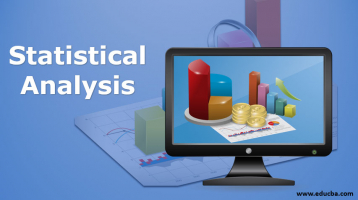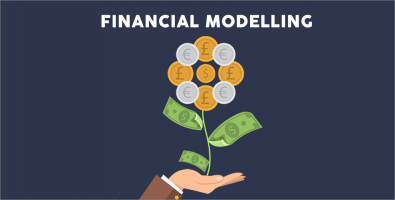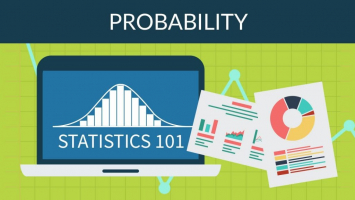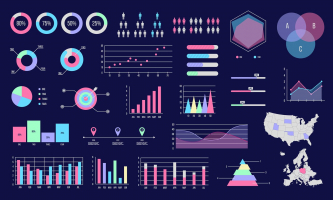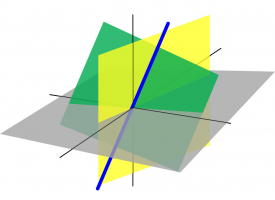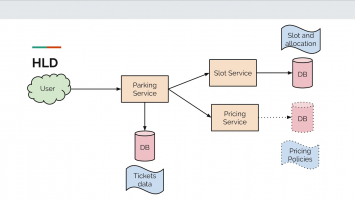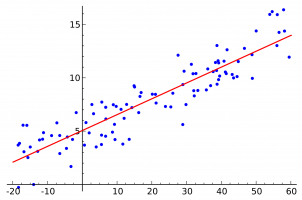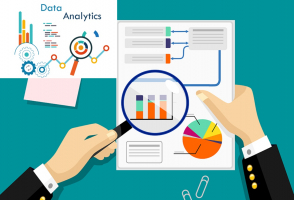Top 6 Best Online Statistical Inference Courses
The technique of deriving conclusions about populations or scientific truths from data is known as statistical inference. Statistical modeling, data-oriented ... read more...methodologies, and explicit use of designs and randomization in studies are all examples of inference methods. To help you gain more understanding and knowledge in this field, Toplist has compiled the top best online Statistical Inference courses, hoping to help learners choose the right courses for themselves.
-
This course is designed to assist you in making more accurate statistical inferences from empirical research. First, this course will cover how to read p-values, effect sizes, confidence intervals, Bayes Factors, and likelihood ratios appropriately, as well as how these statistics can be used to answer a variety of queries. Then you'll learn how to construct experiments with a low false positive rate and how to choose the right sample size for your study, such as to obtain high statistical power. Following that, you'll learn how to analyze evidence in the scientific literature in light of pervasive publication bias, such as through p-curve analysis. Finally, this course will cover how to conduct philosophy of science, theory creation, and cumulative science, as well as how to conduct replication studies, why and how to pre-register your experiment, and how to disseminate your findings in accordance with Open Science principles.
You will learn how to simulate t-tests to determine which p-values to expect, calculate likelihood ratios and gain an introduction to binomial Bayesian statistics, and learn about the positive predictive value, which expresses the probability that published research findings are true, through practical, hands-on assignments. This course will walk you through the issues with optional stopping and teach you how to avoid them by using sequential analyses. You'll calculate effect sizes, do a-priori power analyses, and explore how confidence intervals function through simulations. Finally, you'll learn how to use equivalence testing and Bayesian statistics to determine whether the null hypothesis is true, as well as how to pre-register a study and share your data on the Open Science Framework.Skills you will gain
- Likelihood Function
- Bayesian Statistics
- P-Value
- Statistical Inference
Instructor: Daniel Lakens
Coursera rate: 4.9/5.0, 716 ratings
Offered by: Eindhoven University of Technology
Enroll here: https://www.coursera.org/learn/statistical-inferences

https://www.hospitalitynet.org/ 
https://onlinedegrees.mtu.edu/ -
The technique of deriving conclusions about populations or scientific truths from data is known as statistical inference. Statistical modeling, data-oriented methodologies, and explicit use of designs and randomization in studies are all examples of inference methods. Furthermore, there are multiple complexity (missing data, observed and unobserved confounding, biases) and broad theories (frequentists, Bayesian, likelihood, design based, etc.) for doing inference. A practitioner's mind might become bogged down in a tangle of practices, ideologies, and subtleties.
This is one of the best online Statistical Inference courses. The principles of inference are presented in this course in a practical approach to getting things done. Students will grasp the general directions of statistical inference after taking this course and will be able to apply this knowledge to make informed decisions when examining data. This course is applicable to a variety of Specializations and Professional Certificate programs.
What you will learn
- Describe variability, distributions, limits, and confidence intervals, as well as the process of generating inferences about populations or scientific truths from data.
- Permutation tests, p-values, and confidence intervals are all useful tools.
- Make data analysis judgments that are informed.
Skills you will gain
- Statistics
- Statistical Inference
- Statistical Hypothesis Testing
Instructor: Brian Caffo, Roger D. Peng, Jeff Leek
Coursera rate: 4.2/5.0, 4.342 ratings
Offered by: Johns Hopkins University
Enroll here: https://www.coursera.org/learn/statistical-inference
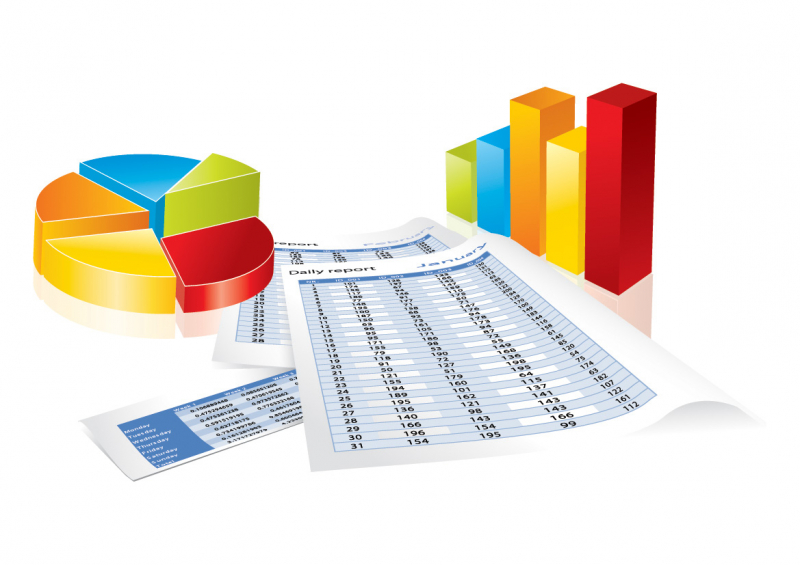
https://anurava.wordpress.com/ 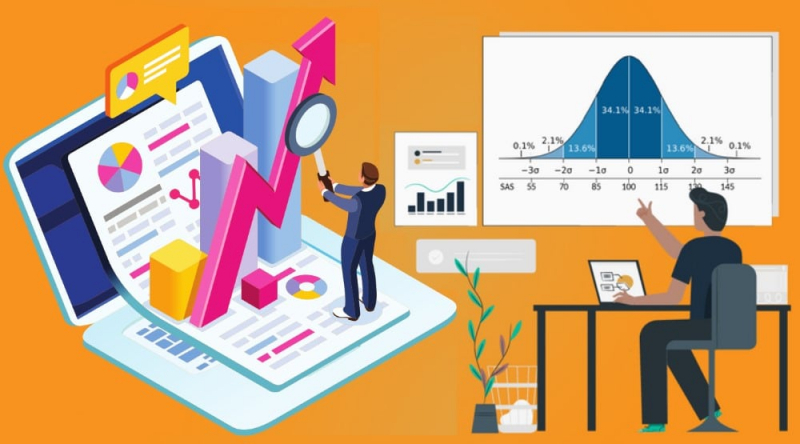
https://www.bestproxyreviews.com/ -
This course - Data Science Foundations: Statistical Inference - is aimed to give students a firm foundation in probability theory in order to prepare them for a more in-depth study of statistics. It will also teach the learner the principles of statistics and statistical theory, as well as the skills needed to do basic statistical analysis on a data set using the R programming language. This is one of the best online Statistical Inference courses.
This specialization is part of CU Boulder's Master of Science in Data Science (MS-DS) degree, which is available on the Coursera platform. The MS-DS is an interdisciplinary degree that brings together faculty from the Applied Mathematics, Computer Science, Information Science, and other departments at CU Boulder. The MS-DS is excellent for persons with a broad variety of undergraduate education and/or professional experience in computer science, information science, mathematics, and statistics, as it is based on performance rather than application.
Learners will put their new probability abilities to the test. by completing exercises in Jupyter Notebooks, including fundamental statistical analysis of data sets Learners will also be able to put their knowledge to the test by taking benchmark quizzes throughout the course.What you will learn
- Explain the significance of probability in statistics and data science.
- In a statistical experiment, look at the link between conditional and independent events.
- Calculate the variance and expectation of various random variables and gain some insight.
- Recognize "excellent" estimator qualities and be able to compare rival estimators.
Skills you will gain
- Inference
- Statistics
- Data Science
- Probability
- Central limit theorem
- Continuous random variables
- Bayes' Theorem
- Discrete random variables
Instructor: Anne Dougherty, Jem Corcoran
Coursera rate: 4.1/5.0, 47 ratings
Offered by: University of Colorado Boulder
Enroll here: https://www.coursera.org/specializations/statistical-inference-for-data-science-applications
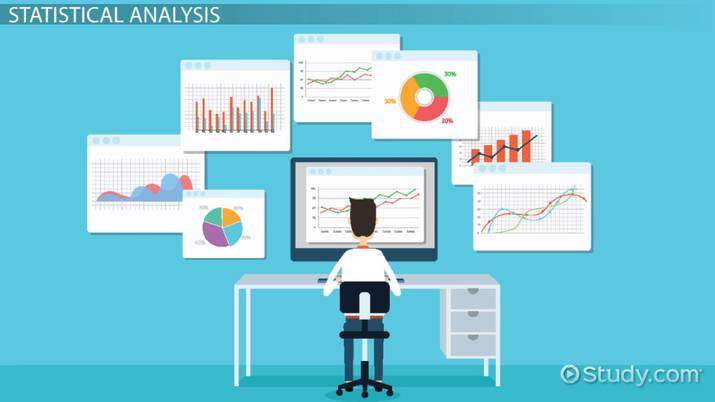
https://study.com/ 
https://research.phoenix.edu/ -
This course will focus on the theory and application of hypothesis testing, particularly as it relates to data science applications and statistical inference. Students will be taught how to use hypothesis testing to create data-driven decisions. The general logic of hypothesis testing, error and error rates, power, simulation, and the correct computation and interpretation of p-values will be given special focus. Usage of testing ideas, particularly p-values, will be discussed, as well as the ethical implications of such misuse.
This course is part of CU Boulder's Master of Science in Data Science (MS-DS) program, which is available on the Coursera platform. The MS-DS is an interdisciplinary degree that brings together faculty from the Applied Mathematics, Computer Science, Information Science, and other departments at CU Boulder. The MS-DS is excellent for persons with a broad variety of undergraduate education and/or professional experience in computer science, information science, mathematics, and statistics, as it is based on performance rather than application.
What you will learn
- For a test with a composite null hypothesis, define a composite hypothesis and the degree of significance.
- Define a hypothesis test's test statistic, level of significance, and rejection region. Create a rejection region in the form of a rectangle.
- Conduct tests to determine the genuine population variance.
- Calculate the exponential distribution's sampling distributions for the sample mean and sample minimum.
Instructor: Jem Corcoran
Coursera rate: N/A
Offered by: University of Colorado Boulder
Enroll here: https://www.coursera.org/learn/statistical-inference-and-hypothesis-testing-in-data-science-applications

https://techbootcamps.utexas.edu/ 
https://www.techradar.com/ -
You'll learn about multiple testing problems, error rates, error rate controlling strategies, false discovery rates, q-values, and exploratory data analysis in this course. The course then moves on to statistical modeling and how it is used to analyze high-throughput data. This course will specifically cover parametric distributions, such as binomial, exponential, and gamma, as well as maximum likelihood estimation. This course also includes various examples of how these concepts are applied to data from next-generation sequencing and microarray experiments. Finally, you and your professors will examine hierarchical models and empirical bayes, as well as some real-world applications. This course uses R programming examples to assist students understand the principles and how to put them into practice. This is one of the best online Statistical Inference courses.
Because of the wide range of educational backgrounds among students, this course has been separated into seven parts. You can enroll in the complete series or pick and choose whatever classes you want to study. If you're a statistician, you might want to skip the first two or three courses; similarly, biologists might want to skip parts of the introductory biology sessions. Throughout the first three courses, the statistics and programming portions of the lesson become increasingly tough. Advanced statistical concepts, such as hierarchical models, will be taught in the third course, while advanced software engineering abilities, such as parallel computing and reproducible research concepts, will be taught in the fourth.
At a glance- Institution: HarvardX
- Subject: Data Analysis & Statistics
- Level: Intermediate
- Prerequisites: PH525.1x and PH525.2x or basic programming, intro to statistics, intro to linear algebra
- Language: English
- Video Transcript: English
- Associated programs: Professional Certificate in Data Analysis for Life Sciences
What you will learn
- Organizing high throughput data
- Multiple comparison problem
- Family Wide Error Rates
- False Discovery Rate
- Error Rate Control procedures
- Bonferroni Correction
- q-values
- Statistical Modeling
- Hierarchical Models and the basics of Bayesian Statistics
- Exploratory Data Analysis for High throughput data
Instructors: Rafael Irizarry, Michael Love
Offered by: Harvard University
Enroll here: https://www.edx.org/course/statistical-inference-and-modeling-for-high-throug

https://www.dreamstime.com/ 
https://www.dreamstime.com/ -
Statistical inference is the process of using data analysis to make inferences about a population or process that go beyond what is already known. By testing hypotheses and calculating estimates, inferential statistical analysis infers population properties. For example, you may survey a sample of individuals in a region and make specific inferences based on that sample utilizing statistical principles such as simulation and probability theory.
This is one of the best online Statistical Inference courses. You will learn about modern statistical concepts and processes that are drawn from a mathematical foundation in this course. This course is intended for advanced undergraduates, statistics master's students, and STEM and other doctoral candidates. You will gain a thorough understanding of how statistics function, which will prepare you for further statistics coursework. Some computations in the R programming language may be required for assignments. A Bachelor's degree conferred with a 3.3 or above undergraduate GPA.
What you will learn
- The ideas that underpin statistical approaches, such as sample vs. population, are discussed.
- Testing, estimation, confidence intervals, and model selection are examples of inferential tasks.
- How to apply models based on a few different types of distributions, such as normal, binomial, and Poisson
Prerequisites - Basic combinatorics, discrete and continuous random variables, special distributions, laws of large numbers, and the central limit theorem are all covered in this rigorous introductory probability course. Advanced calculus: understanding of infinite series, limits, and double integrals.
This course include
- Decision theory
- Point and interval estimation
- Tests of hypotheses
- Neyman-Pearson theory
- Bayesian analysis
- Maximum likelihood
- Large sample theory
Offered by: Stanford University
Enroll here: https://online.stanford.edu/courses/stats200-introduction-statistical-inference

https://leverageedu.com/ 
https://www.indcareer.com/








